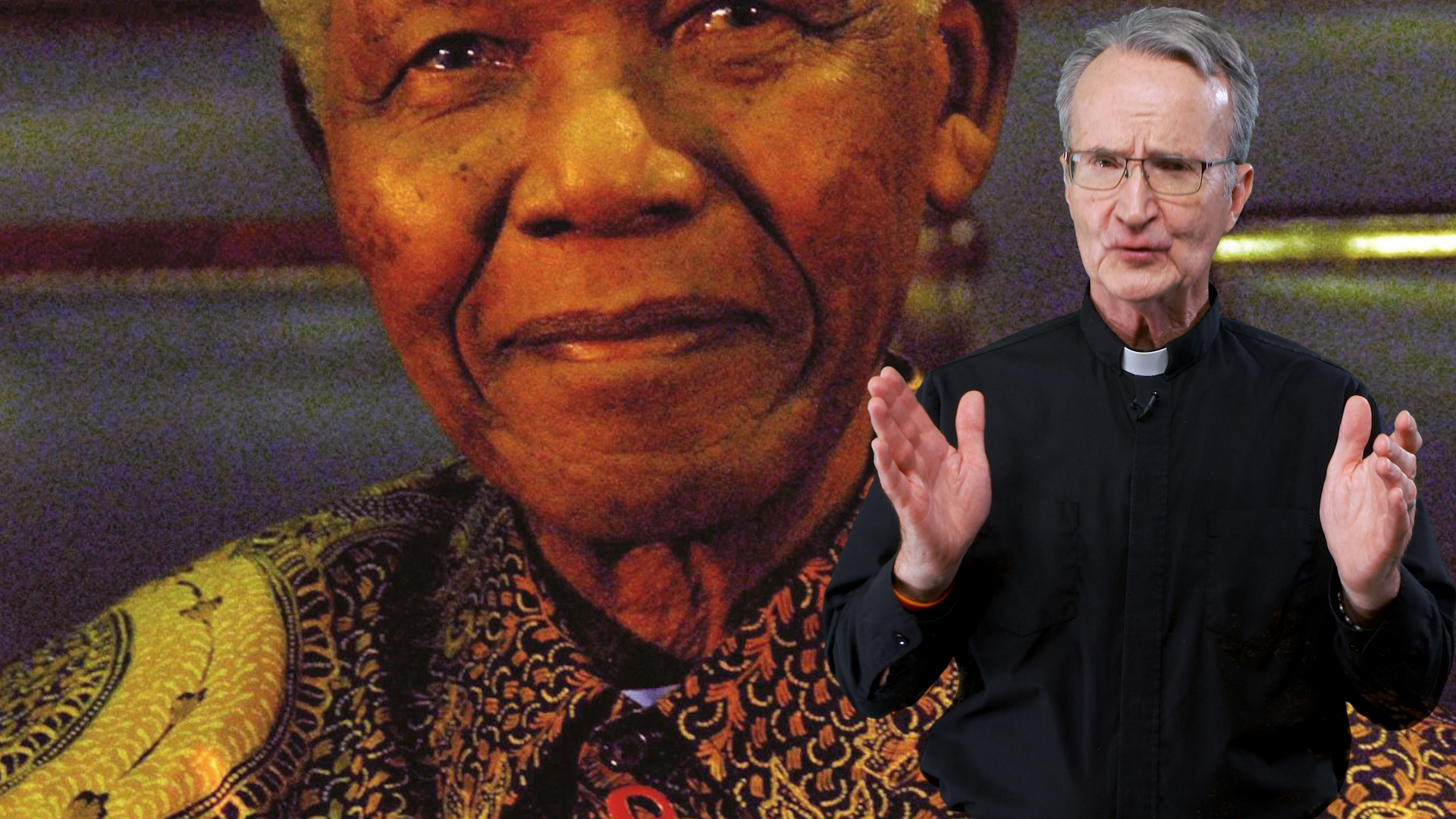Isaiah 2:4-5
He shall judge between the nations, and impose terms on many peoples.They shall beat their swords into plowshares and their spears into pruning hooks; One nation shall not raise the sword against another, nor shall they train for war again.
Born in Transkei, South Africa, on July 18, 1918, Nelson Mandela was the son of a local tribal leader. He grew up taking part in the activities of his Tembu tribe. Later, he rejected becoming chieftain in order to study law. Educated at two excellent universities, Nelson acquired a law degree in 1942. In 1944, he joined a Black Liberation Group, the African National Congress (ANC), as leader of the youth league. Holding other leadership positions in the ANC as well, Mandela helped to bring many to oppose the apartheid policies, policies based on racial segregation and discrimination, of the ruling National Party in South Africa.
In Johannesburg, Mandela partnered with another ANC leader to set up the first Black law practice. They took cases resulting from apartheid laws. Soon they joined with others to defy South Africa’s pass laws which required non-whites to carry pass books to allow them to be in areas restricted only to white people. Mandela traveled all over South Africa, promoting non-violent protests against laws upholding racial discrimination. His work for justice brought the authorities down on him. They banned him from traveling, from associating with certain people, and from speaking freely. Still, in 1955, he and others drafted the Freedom Charter which called for a nonracial social democracy in South Africa.
In 1956, he was arrested on charges of treason, a fake charge designed to scare antiapartheid activists. His case, along with the cases of 100 other activists, went to trial that same year. Unfortunately, it dragged on for several years. Finally, Nelson was acquitted in 1961. Mandela founded the military wing of the ANC and strayed from his nonviolent message for a time after the massacre of unarmed Blacks by the police at Sharpeville in 1960 and the banning of the ANC. He was arrested in 1962 and sentenced to 5 years in prison. He admitted to some involvement in sabotage in 1963 and was imprisoned from then until 1990. During those years, he was offered freedom conditionally several times, but he stood by his people, stating that only free people could negotiate. It seems that during his incarceration, he decided to embrace peace.
In 1991, Mandela led the ANC in negotiations with the President of South Africa to end apartheid and begin a peaceful transition to democracy. Universal voting rights allowed Mandela to be elected president of the country. He initiated many programs to improve the living conditions of the country’s Black population. He did not seek a second term as president. Instead, he focused on advocating for peace, reconciliation, and social justice internationally. He promoted peaceful conflict resolution and community service. He was willing to die for the cause of justice. Fearless, moral, committed to the cause of freedom, Nelson Mandela learned, through suffering. He lived, in the end, Isaiah’s call to beat swords into plowshares and spears into pruning hooks.
Nelson Mandela is today’s Ornament of Grace.
OBSERVING THE BEAUTIFUL ORNAMENTS
-
- How do you see the call to peace and holiness linked to the need for justice?
- How can suffering change your perspective, as it did Nelson Mandela’s, on how to work toward justice peacefully?







